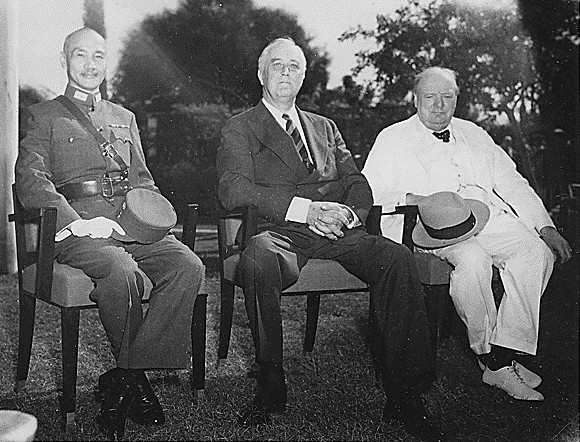
The Biblical Churchill (2): “A House of Many Mansions”
N.B. “A House of Many Mansions” is from the original Appendix IV in my book Churchill By Himself. It was deleted in the later edition, Churchill in His Own Words, to make room for an index of phrases. Continued from Part 1…
“A house of many mansions”
The New Testament Gospel according to St. John, Chapter 14, contains an inspiring passage that Winston Churchill absorbed as a boy:
1. Let not your heart be troubled: ye believe in God, believe also in me. 2. In my Father’s house are many mansions; if it were not so, I would have told you. I go to prepare a place for you. 3. And if I go and prepare a place for you, I will come again, and receive you unto myself; that where I am, there ye may be also. 4. And whither I go ye know, and the way ye know.
Churchill particularly liked verse 2, “a house of many mansions,” and quoted it during five important moments in his career. The first apparent instance was in Dundee, Scotland in May 1908, a Parliamentary seat he won and would hold for 14 years. Here he spoke of the broadness and diversity of the British Empire:
Cologne Cathedral took 600 years to build. Generations of architects and builders lived and died while the work was in progress….So let it be with the British Commonwealth. Let us build wisely, let us build surely, let us build faithfully, let us build, not for the moment but for future years, seeking to establish here below what we hope to find above—a house of many mansions, where there shall be room for all.[5]
The thought remained with him three years later, when as Home Secretary he said in London:
The British Empire must be a house of many mansions, in which there shall be room for each and all to develop to the fullest his personal or national contribution to the common united welfare and to the strength of the indivisible whole.[6]
Thirty years on
“Many mansions” lodged comfortably in his commodious memory for almost 30 years before Churchill found need of it again. This time it was to assure peoples under the Nazi boot that their ultimate liberation was sure:
The day will come when the joybells will ring again throughout Europe, and when victorious nations, masters not only of their foes, but of themselves, will plan and build in justice, in tradition, and in freedom, a house of many mansions where there will be room for all.[7]
He certainly thought this a serviceable line, because he invoked it to President Roosevelt in 1943. He mentioned only chapter and verse, since he knew FDR kept a Bible handy. The President had cabled that Cairo, their proposed meeting place before the Teheran Conference with Stalin, was vulnerable to German air attack. Should they rendezvous elsewhere? Churchill replied: “See St. John, chapter 14, verses 1 to 4.”[8]
The text of those verses was typed on the message by his Map Room staff. “On reading this through more carefully after it had gone,” Churchill reflected, “I was a little concerned lest, apart from a shadow of unintended profanity, it should be thought I was taking too much upon myself and thus giving offence. However, the President brushed all objections aside and our plans were continued, unchanged.”[9]
Again at Fulton in 1946, in perhaps his most crucial speech of the postwar years, Churchill argued for a continuation of the Anglo-American “special relationship” born in World War II. There was nothing in the United Nations Charter, he said, that precluded any special arrangements between countries:
None of these clash with the general interest of a world agreement, or a world organisation; on the contrary they help it. ‘In my Father’s house are many mansions.’ Special associations between members of the United Nations which have no aggressive point against any other country, which harbour no design incompatible with the Charter of the United Nations, far from being harmful, are beneficial and, as I believe, indispensable.[10]
Endnotes
5. Winston S. Churchill, Kinnaird Hall, Dundee, 4 May 1908, in Liberalism and the Social Problem (London: Hodder & Stoughton, 1909), 202
6. WSC, Trocadero Restaurant, London, 11 March 1911, in Robert Rhodes James, ed., Winston S. Churchill: His Complete Speeches 1897-1963, 8 vols. (New York: Bowker, 1974), II: 1720.
7. WSC, broadcast, London, 20 January 1940, in Blood Sweat and Tears (New York; Putnams, 1941), 254.
8. WSC to President Roosevelt, 21 November 1943, in WSC, Closing the Ring (London: Cassell, 1952), 289.
9. Ibid.
10. WSC, Westminster College, Fulton, Missouri, 5 March 1946, in The Sinews of Peace (London: Cassell, 1948), 99.
Concluded in Part 3.






